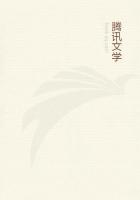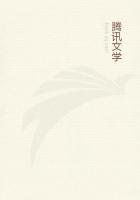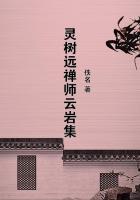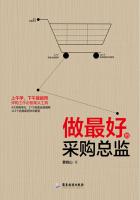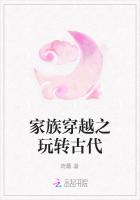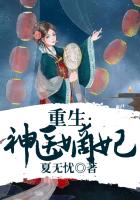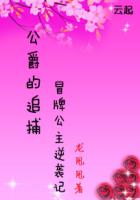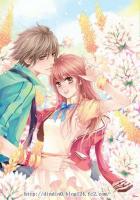Of the New Paganism (or neo-Paganism), as it was preached flamboyantly by Mr. Swinburne or delicately by Walter Pater, there is no necessity to take any very grave account, except as a thing which left behind it incomparable exercises in the English language. The New Paganism is no longer new, and it never at any time bore the smallest resemblance to Paganism.
The ideas about the ancient civilization which it has left loose in the public mind are certainly extraordinary enough.
The term "pagan" is continually used in fiction and light literature as meaning a man without any religion, whereas a pagan was generally a man with about half a dozen. The pagans, according to this notion, were continually crowning themselves with flowers and dancing about in an irresponsible state, whereas, if there were two things that the best pagan civilization did honestly believe in, they were a rather too rigid dignity and a much too rigid responsibility.
Pagans are depicted as above all things inebriate and lawless, whereas they were above all things reasonable and respectable.
They are praised as disobedient when they had only one great virtue--civic obedience. They are envied and admired as shamelessly happy when they had only one great sin--despair.
Mr. Lowes Dickinson, the most pregnant and provocative of recent writers on this and similar subjects, is far too solid a man to have fallen into this old error of the mere anarchy of Paganism.
In order to make hay of that Hellenic enthusiasm which has as its ideal mere appetite and egotism, it is not necessary to know much philosophy, but merely to know a little Greek.
Mr. Lowes Dickinson knows a great deal of philosophy, and also a great deal of Greek, and his error, if error he has, is not that of the crude hedonist. But the contrast which he offers between Christianity and Paganism in the matter of moral ideals--a contrast which he states very ably in a paper called "How long halt ye?" which appeared in the Independent Review--does, I think, contain an error of a deeper kind. According to him, the ideal of Paganism was not, indeed, a mere frenzy of lust and liberty and caprice, but was an ideal of full and satisfied humanity.
According to him, the ideal of Christianity was the ideal of asceticism.
When I say that I think this idea wholly wrong as a matter of philosophy and history, I am not talking for the moment about any ideal Christianity of my own, or even of any primitive Christianity undefiled by after events. I am not, like so many modern Christian idealists, basing my case upon certain things which Christ said.
Neither am I, like so many other Christian idealists, basing my case upon certain things that Christ forgot to say.
I take historic Christianity with all its sins upon its head;I take it, as I would take Jacobinism, or Mormonism, or any other mixed or unpleasing human product, and I say that the meaning of its action was not to be found in asceticism. I say that its point of departure from Paganism was not asceticism. I say that its point of difference with the modern world was not asceticism.
I say that St. Simeon Stylites had not his main inspiration in asceticism.
I say that the main Christian impulse cannot be described as asceticism, even in the ascetics.
Let me set about making the matter clear. There is one broad fact about the relations of Christianity and Paganism which is so simple that many will smile at it, but which is so important that all moderns forget it. The primary fact about Christianity and Paganism is that one came after the other. Mr. Lowes Dickinson speaks of them as if they were parallel ideals--even speaks as if Paganism were the newer of the two, and the more fitted for a new age.
He suggests that the Pagan ideal will be the ultimate good of man;but if that is so, we must at least ask with more curiosity than he allows for, why it was that man actually found his ultimate good on earth under the stars, and threw it away again.
It is this extraordinary enigma to which I propose to attempt an answer.
There is only one thing in the modern world that has been face to face with Paganism; there is only one thing in the modern world which in that sense knows anything about Paganism:
and that is Christianity. That fact is really the weak point in the whole of that hedonistic neo-Paganism of which I have spoken.
All that genuinely remains of the ancient hymns or the ancient dances of Europe, all that has honestly come to us from the festivals of Phoebus or Pan, is to be found in the festivals of the Christian Church.
If any one wants to hold the end of a chain which really goes back to the heathen mysteries, he had better take hold of a festoon of flowers at Easter or a string of sausages at Christmas.
Everything else in the modern world is of Christian origin, even everything that seems most anti-Christian. The French Revolution is of Christian origin. The newspaper is of Christian origin.
The anarchists are of Christian origin. Physical science is of Christian origin. The attack on Christianity is of Christian origin.
There is one thing, and one thing only, in existence at the present day which can in any sense accurately be said to be of pagan origin, and that is Christianity.
The real difference between Paganism and Christianity is perfectly summed up in the difference between the pagan, or natural, virtues, and those three virtues of Christianity which the Church of Rome calls virtues of grace. The pagan, or rational, virtues are such things as justice and temperance, and Christianity has adopted them.


